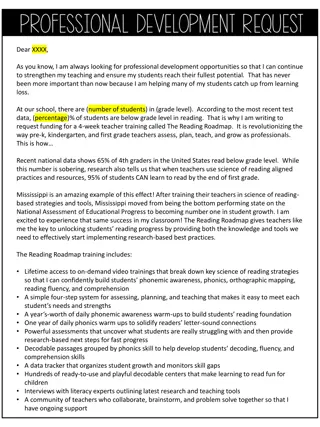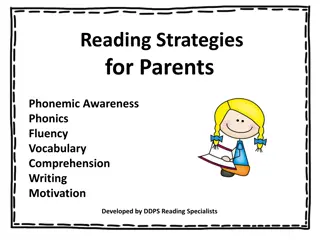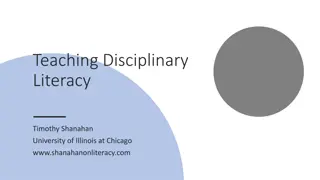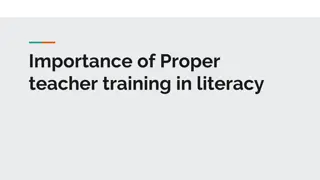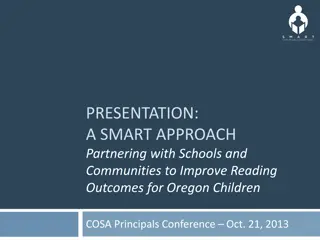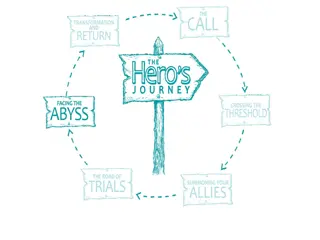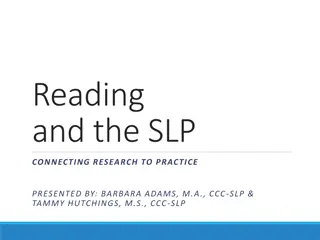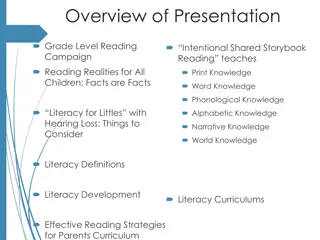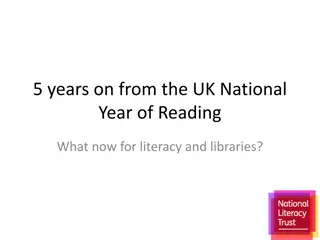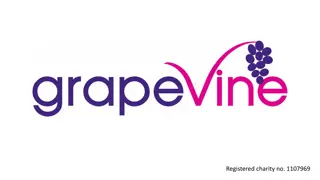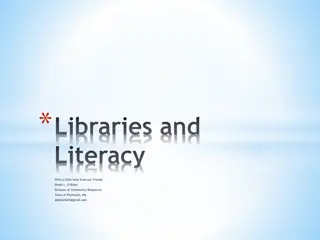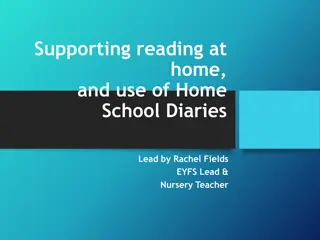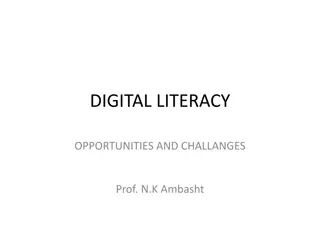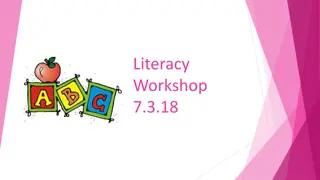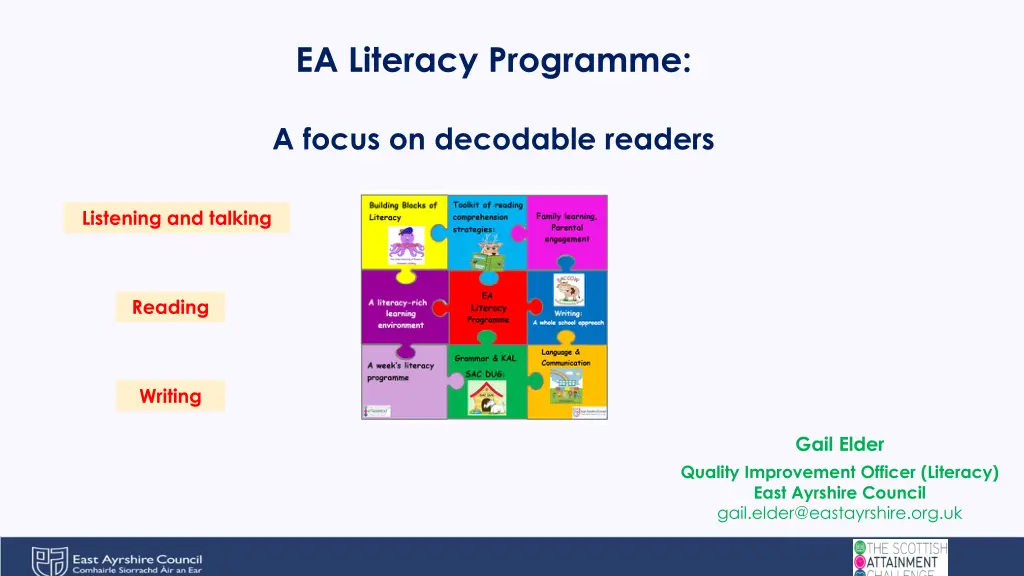
Effective Literacy Strategies for Children: Decodable Books and Phonics
Explore the importance of decodable books and phonics in literacy programs for children. Decodable books help young readers practice word decoding and fluency, while phonics teaches the relationship between sounds and letters. Understand the benefits of these strategies in developing children's reading skills effectively.
Download Presentation

Please find below an Image/Link to download the presentation.
The content on the website is provided AS IS for your information and personal use only. It may not be sold, licensed, or shared on other websites without obtaining consent from the author. If you encounter any issues during the download, it is possible that the publisher has removed the file from their server.
You are allowed to download the files provided on this website for personal or commercial use, subject to the condition that they are used lawfully. All files are the property of their respective owners.
The content on the website is provided AS IS for your information and personal use only. It may not be sold, licensed, or shared on other websites without obtaining consent from the author.
E N D
Presentation Transcript
EA Literacy Programme: A focus on decodable readers Listening and talking Reading Writing Gail Elder Quality Improvement Officer (Literacy) East Ayrshire Council gail.elder@eastayrshire.org.uk
Building a reader Comprehension Strategies Vocabulary & Background knowledge Fluency Phonics Phonological Awareness & Phonemic Awareness Print Awareness & Book Concepts
Reading books we have used previously to teach reading Levelled texts Predictable texts
Decodable books All books and text are decodable in the sense that they can be read, but only if the reader has sufficient reading ability for the complexity of the text. For beginning readers, the only books that are truly decodable are those that contain the alphabetic code they have learned.
So, what are decodable books They- are designed for children who are learning to read, are carefully written stories and texts that only use the letter sounds children have been taught. offer children the opportunity to practise decoding words help to develop children s reading fluency as they sound out the letters on the page and blending them into words. develop word recognition for high-frequency words that will help them to read fluently. With repeated practice, children can read words quickly and fluently (orthographic mapping)
Phonics Phonics is how we teach children to read by linking sounds (phonemes) and the symbols that represent them (graphemes, or letters). It is a code - the alphabetic code.
As adults, we use our phonics knowledge pseudofolliculitis barbae razor bumps!
We have 44 sounds or phonemes that we use in our spoken language but we only have 26 letters. or 4 letters Sounds can be spelled with 1 letter, 2 letters, 3 letters Sounds can be spelled in many ways. Take the /ae/ sound: baby eight way wait great gate grey straight Spellings can represent more than one sound. Take the <o> letter: some to most hot
Phonics skills we teach: Blending: For reading we teach blending: sound out and blend the sounds all through the word (decoding) finger tracking under each grapheme and sounding out (saying the sounds) all the way through the word. Initial Sounds Mouth Shapes - YouTube
Phonics skills we teach: Segmenting: For spelling we teach segmenting. We start with a spoken word - we say the word, sounding out each of the sounds - tally how many sounds - then match the letter(s) we need - to write it (encoding) or use our magnetic letters
Phonics skills we teach: Letter formation: Your child learns how to write the letters (graphemes) as they are taught each sound (phoneme).
Common or High Frequency Words We teach these words as part of our phonics programme.
Phonics is only part of how we teach reading If a child memorises ten words, the child can only read ten words. If a child learns the sounds of ten letters, the child will be able to read 350 three sound words, 4,320 four sound words, 21,650 five sound words. Kozloff, 2002 Decodable readers
What can you do to help your child? When children take a reading book home to practise their decoding skills: Listen to them read their reading book . If they stick at a word, give praise when they try to sound out the sounds in the word. If still stuck, you can give the word. Talk about what is happening in the books you read.




